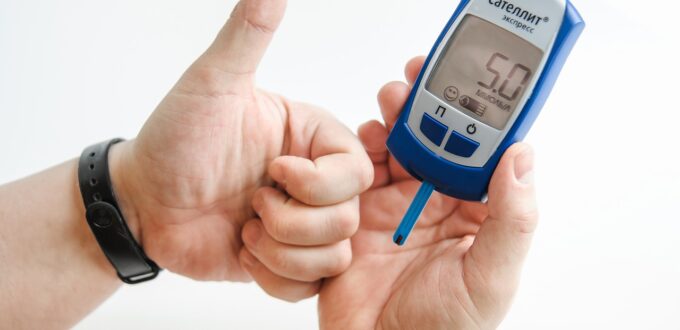A new study has found that for diabetics who experience strokes, there may be ideal targets for blood sugar to reduce the risk of various types of vascular diseases such as stroke or a heart attack later.
A new study has found that for diabetics who experience strokes, there may be ideal targets for blood sugar to reduce the risk of various types of vascular diseases such as stroke or a heart attack later.
The research findings are published in the ‘Neurology’ medical journal.
“We know that suffering from diabetes can be associated with an increased risk of experiencing the first stroke,” said the author of Moon-ku Han, MD, PhD, from the National University of Seoul’s medical school in Korea.
“But our results show that there are optimal blood sugar levels that might begin to minimize the risk of experiencing other strokes, heart attacks or other vascular problems, and it is right in the range of 6.8 percent to 7.0 percent,” Han added. .
This study involved 18,567 people with diabetes with an average age of 70. All participants were hospitalized for ischemic strokes, caused by blood clots. After entering, researchers used a test called Hemoglobin A1C to determine the average blood sugar levels for the past two to three months.
This test measures the percentage of hemoglobin protein in the blood coated with sugar. The rate below 5.7 percent is considered normal; 6.5 percent or higher generally show diabetes. The participants have an A1C on average 7.5 percent.
The researchers then followed up one year later to find out whether there was a relationship between A1C levels and the risk of experiencing other strokes, a heart attack, or dying from this or other vascular causes.
Of all participants, 1,437, or around 8 percent, experience a heart attack or die of vascular diseases within one year to start research, and 954, or 5 percent, have other strokes.
The study found that people claimed to be hospitalized with A1C level above the range of 6.8 percent to 7.0 percent had an increased risk of having vascular events such as a heart attack, and experienced other strokes.
After adjusting the factors such as age and gender, the researchers found that the risk of people for a heart attack or similar vascular disease was 27 percent greater when they were hospitalized with the A1C level above 7.0 percent, compared to the A1C level at below 6.5 percent.
The risk of people to experience other strokes is 28 percent greater when hospitalized with A1C levels above 7.0 percent, compared with those below 6.5 percent.
“Our findings highlight the importance of keeping your blood sugar if you have diabetes and have experienced a stroke,” Han said.
The limitations of this study are that blood sugar levels are measured only at the beginning of the study; There is no follow-up level available.


No Comments Yet